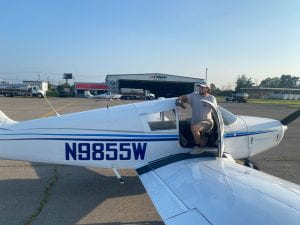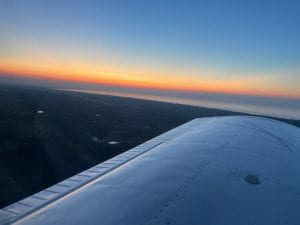My STEP Signature Project was a 12-week Leadership Training (LT) program that took place at the YMCA of the Rockies in Estes Park, CO. Alongside 50 other LT participants, I lived on grounds at the Y and worked a full-time job at the craft shop; I worked with other seasonal employees and international students from a vast array of countries. Twice a week after our shifts I participated in equipping sessions, and on one of our off days I participated in a full day of training and equipping in a smaller subset of LT staff and participants called Community Groups.
While completing my STEP Signature Project, the way in which I view leadership and what I value about leadership was greatly transformed. I have always been someone who pursued leadership positions in various organizations because I grew up with an understanding that that’s just what you do. You participate, you move forward, and you lead. During my sophomore year at Ohio State, I followed this pattern and apprenticed to lead a small group in my church. As I met with my mentor, I discovered that leading a small group was causing me a lot of stress and anxiety. My mentor helped me to process and continue to lead through the stress, but I never unpacked why it was increasingly difficult for me to lead.
In Colorado, I was placed in a leadership role with a group of four women in LT. Like my sophomore year small group, I was initially very anxious about leading. Through the LT program and equipping sessions with my mentor staffer, I began to unpack the root of my stress around leading: I was motivated to lead by the pursuit of the approval of the people I was leading. I put my worth as a leader in the external validation I received, so much of my headspace around leading was spent trying to facilitate conversation to perfectly accommodate and serve each person, something that cannot be guaranteed, nor should be the motivation of leading. With my staff mentor, I processed where my worth laid as a leader, and began to shift that worth to how I could point the women in my group to other sources of insight, how I could challenge them to consider their worldviews, and how I could be an example of humility. I discovered that when I took myself out of the mental spotlight, I was able to lead from a much less anxious and more sacrificial headspace.
Since LT is a Christian program, a lot of my community within LT was people who shared similar worldviews with me; this community was very beneficial and fostered a space for me to grow in my faith and leadership. A specific example of transformation within the LT community was through my weekly meeting with an staffer named Emily. In our meetings, Emily and I discussed the small group I led weekly; she regularly challenged me to take a step back and analyze where my pride and motivation was in leading. I began the summer putting a lot of worth in what my group thought of me and how effective of a leader I was, but I grew in viewing my leadership to as an opportunity to serve and love my group, prioritizing their growth over their approval of me.
Similarly, an impactful relationship this summer was with another LT participant named Natalie. Natalie held the same leadership role as I did with a different small group, and we were able to talk about our groups as we worked and lived together. I learned so much from Natalie’s perspective and approach to leading. She had led in different capacities back on her college campus, and she viewed leadership as a very valuable investment in her community, but not something that defined her. She had high hopes for how she could walk alongside the women in her group but didn’t place her worth in their approval. Processing with Natalie allowed me to see an alternative perspective towards leadership and to adapt and grow from her experiences.
Additionally, participating in LT entailed working alongside people from all over both the country and the globe. Each person I worked, ate, and lived with came from a different background and brought insight from diverse life experiences into our interactions. A few of my coworkers at the craft shop were from Colombia, and I was able to learn about their upbringing and university experiences. I was able to better understand what they valued based on the community they grew up in, expanding my capacity to empathize and share in their values. This helped me to consider that the things I find valuable in a leader are not the same as everyone else, and that leading is always an opportunity to adapt and meet people where they are at.
As I return to Ohio State, I have no doubt that the way I view leadership will continue to grow and adapt. I now am stepping into a small group leader role within my church, and I view it as a worthwhile investment of my time and energy to serve and better understand the women in my group. I look forward to learning what they value and considering ways I can adapt as a leader; however, I am going to be intentional in not putting me worth in how much the women like the way I lead. In doing so, I will be more present, steady, and others focused. This summer, my STEP Signature Project exposed my pride and motivation for leading, and quite honestly it was incredibly humbling. I hope to move forward and lead for the sake of those I am leading rather than myself.
The growth and self-understanding I have gained will continue to be valuable as I take the role of a STEP ambassador, continue to lead on the Student Dietetic Association board, and eventually when I pursue research and my master’s degree to become as dietitian. Each organization, lab, and community I am a part of will hold spaces where I can step up as a leader, and I look forward to doing so for the sake of those I am leading.

My Community Group!

The small group of women that I led this summer!










